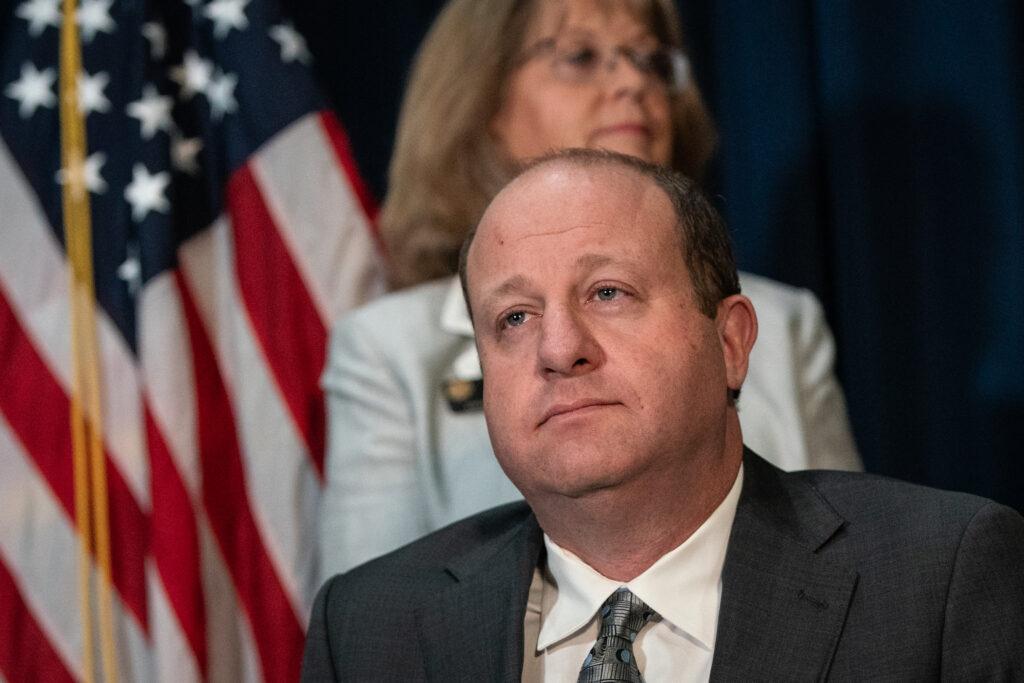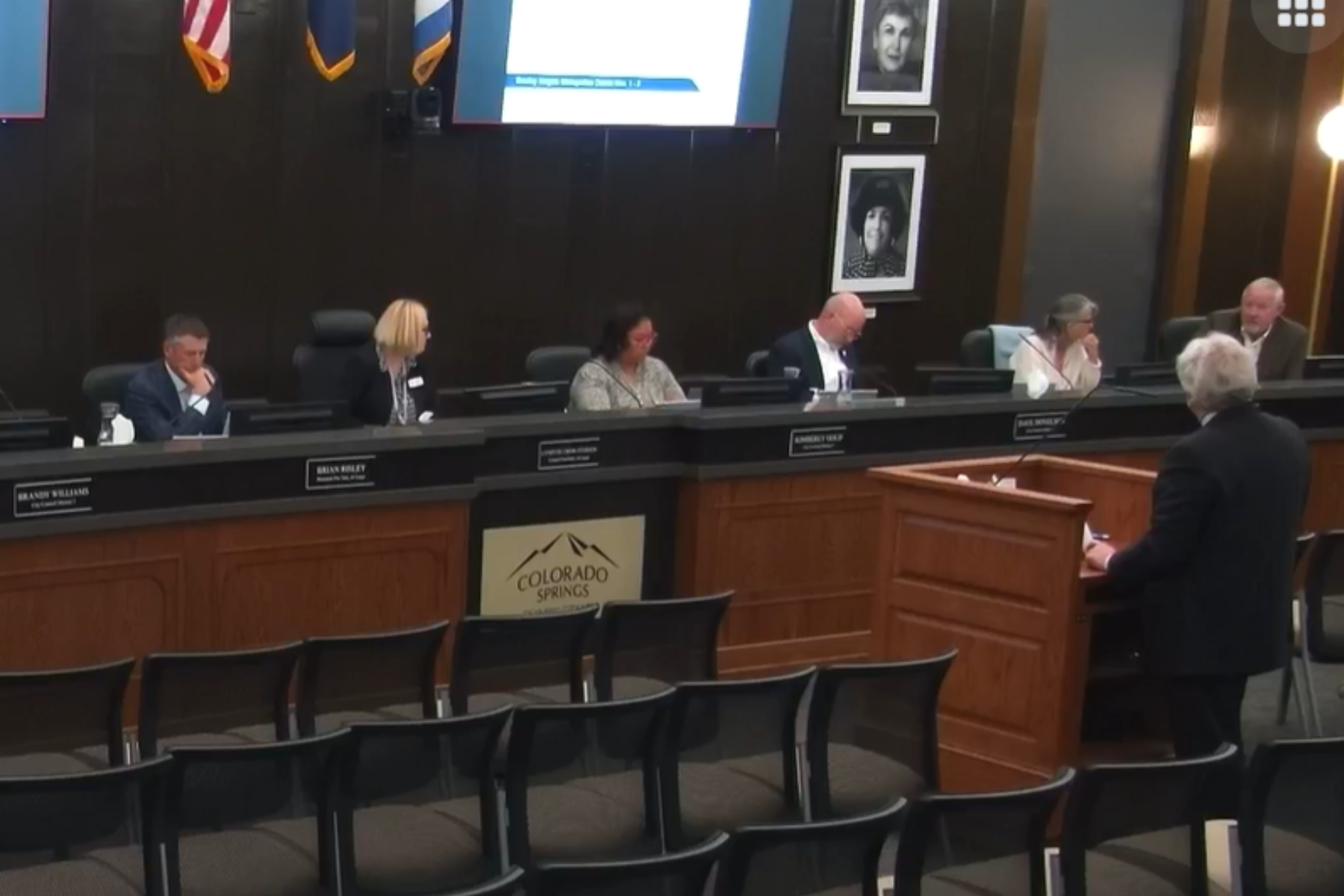
More than $36.5 million in emergency preparedness funds for Colorado are on hold because of the government shutdown, lawsuits and immigration policy changes, according to state officials.
The terms and conditions for Federal Emergency Management Agency grants include a requirement to share immigration data with federal officials, assist in deportations, and provide updated population estimates.
The terms may also affect whether states can receive emergency funds for disasters like the Lee and Elk fires in Colorado this summer. The state is still waiting on President Trump to issue a “major disaster declaration,” which would unlock millions of dollars of FEMA funding.
States led by Democratic governors, including Colorado, have sued the Trump administration to remove some of the terms, which they argue are illegal.
In September, a federal judge agreed and ruled that linking immigration-enforcement provisions to Department of Homeland Security (DHS) grants is unconstitutional and barred the Trump administration from doing so.
On Tuesday, the same judge chastised FEMA for continuing to use the terms, calling the agency’s efforts “ham-handed” and ordering it to remove the terms within a week.
“The administration cannot bully the states into doing federal civil immigration enforcement by withholding congressionally approved funding,” said Lawrence Pacheco, a spokesperson for Colorado Attorney General Phil Weiser, about the ruling.
FEMA did not return a request for comment.
Funds supported crucial programs, but shutdown is affecting access
The FEMA funds, some of which Colorado has relied on for decades, include support for a counter-terrorism center, a nuclear weapons detection program in Denver, and a program for 55 county emergency managers in the state.
While the funds remain in limbo, the state is covering some of the shortfall.
In August, Gov. Polis allocated $15 million from a COVID-era relief bill to help pay for some programs. Colorado is also using previously awarded FEMA funds to cover some emergency manager salaries for now.

Since Inauguration Day, the Trump administration has sought to restrict federal funding for states and cities that resist mass deportation efforts.
An analysis by the governor’s office found that more than $102 million for Colorado from DHS, which oversees FEMA, has been blocked or frozen during the Trump administration.
Colorado has already restored more than $83 million of that funding through lawsuits, according to an online tracker.
“The federal government should be a partner in smart investments to keep us safe, not force states to go to great lengths to keep these congressionally appropriated dollars,” said Eric Maruyama, a spokesperson for the governor.
But even if state officials wanted to comply with the administration's terms, they couldn't.
FEMA’s grant website has been shut down during the federal government shutdown, according to Kevin Klein, director of Colorado’s Division of Homeland Security and Emergency Management.
“We can’t sign the award, and we can’t access the system, so I take that as a freeze,” he said.
Federal courts keep rebuking DHS
In September, DHS sent Colorado new contracts for several emergency preparedness grants, which included the immigration-enforcement terms.
The Emergency Management Performance Grant, or EMPG, provides $5.7 million to help cover the salaries of state officials and county emergency managers, who help triage resources after disasters like the Lee Fire this summer or flooding on Monday.

Another grant provides $4.3 million to help pay for security upgrades to non-profits like synagogues and churches in Colorado.
FEMA also awarded roughly $23 million to the state and cities, including Denver, from its Homeland Security Grant Program, which started in the aftermath of 9/11, to fund security projects.
In past years, Denver has used its homeland security grant money to buy equipment for its bomb squad and a “hazmat railcar” for training exercises.
Caroline Buhse, the grants manager for Denver’s Office of Emergency Management, said in a May legal filing that the city could not comply with the immigration terms tied to the funding. But she warned that not receiving the money would hamstring Denver’s ability to prepare and train for attacks.
“These functions are heavily reliant on FEMA funds, so their termination could leave the Denver metropolitan area vulnerable in the event of an attack,” she said in the filing.
DHS originally added the immigration enforcement conditions to federal grants it oversees in March.
In May, Colorado and 19 other states sued FEMA to remove those terms. In their lawsuit, they wrote that money they rely on for relief efforts and disaster mitigation is being “held hostage” by the Trump administration.
In September, federal judge William E. Smith said the immigration provisions were unconstitutional and that the government could not enforce them. He issued an injunction that prevented FEMA from including those terms.
But that ruling did not stop the Trump administration from adding similar immigration terms back into grants it awarded to Colorado a few days later.
On Tuesday, Smith clarified his ruling and said FEMA must remove the terms within a week, and that FEMA’s efforts have been “not in good faith.”
Another judge has also prevented the Trump administration from cutting and re-distributing homeland security funding meant for blue states like New York (Colorado did not join onto that lawsuit).
Colorado has been girding for changes to FEMA programs for months
One of the terms in the emergency management grant says the state must send FEMA updated population data as of Sept. 30, and exclude people deported from Colorado.
The state must also tell FEMA how it calculated its numbers, according to Klein.
Klein called the request “unusual,” and said that his department is complying “to the extent that we can,” and working with the state demographer to figure out a count.
But, he added that Colorado is being asked to calculate census data that is normally calculated every 10 years, and that the state doesn’t even keep federal deportation numbers.
Klein said no emergency managers will be immediately laid off while the funding is held up, since the state has cobbled together funds to handle the shortfall.
But that’s only temporary, unless the federal funding comes through or the state sets aside more money.
“It would not surprise me at all to see some emergency managers laid off if we don't come up with alternative funding,” he said.









